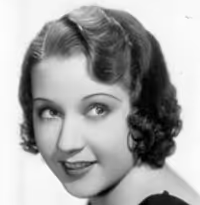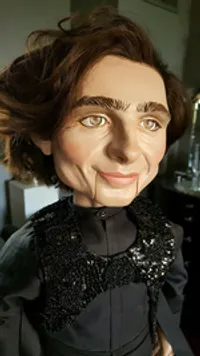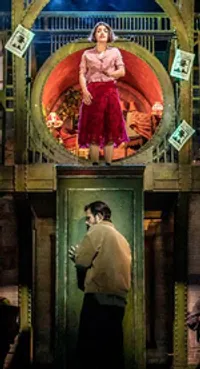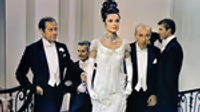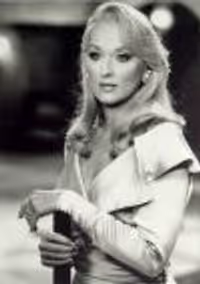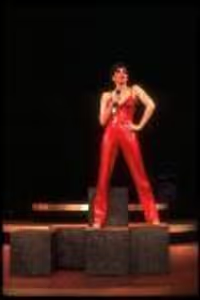Complete CAROUSEL cast recording on its way
#25Complete CAROUSEL cast recording on its way
Posted: 7/21/24 at 6:16pm
Smaxie said: "The Ovrtur website goes into some detail about the original orchestrations for Carousel, because it gets complicated.""
Yeah it's all wonderfully complicated. It's funny because as a teen starting to pay attention to orchestrations, I found it odd how A Chorus Line originally had so many different ones (it was due for a variety of reasons but mostly money and timing so they'd ask an orchestrator to do such and such number when they had the time, etc) A big deal was made with the revival that Jonathan Tunick (one of the original orchestrators) was going to go over the entire show and give it a uniform sound (which was unnecessary I felt... And of course I mostly prefer the originals, the difference being most noticeable with What I Did For Love's intro.)
BUT the irony is that *most* shows up through the 60s anyway had ghost orchestrators anyway--as the Ovrtur info you posted makes clear (and Steven Suskin's wonderful book on Broadway Orchestrations makes even more clear.) I'm sure it still happens though I know Sondheim's two orchestrators from 1970 on--Michael Starobin and Jonathan Tunick, of course--have been proud to point out they've never used ghost orchestrators. Though I know that both HAVE been used as ghost orchestrators for other projects lol
It is interesting that Rodgers insisted on Walker re-orchestrating the RRB numbers but not the others.
#26Complete CAROUSEL cast recording on its way
Posted: 7/22/24 at 10:28am
ErmengardeStopSniveling said: "Then and now it's not uncommon for an orchestrator or composer to farm out a few numbers to a different orchestrator. Especially if a lot of new material is going in out of town or late in the process. Sometimes those people enjoy working in the style that has already been set."
Despite being credited as sole orchestrator for all the R&H shows--including Cinderella on television--other than Carousel, actually the only show Robert Russell Bennett wrote all the orchestrations for himself was The Sound of Music (which, incidentally, he considered the best score Rodgers ever wrote).
#27Complete CAROUSEL cast recording on its way
Posted: 7/22/24 at 11:52am
joevitus said: "the only show Robert Russell Bennett wrote all the orchestrations for himself was The Sound of Music (which, incidentally, he considered the best score Rodgers ever wrote)."
Huh. I guess even geniuses have bad opinions sometimes ;)
EvanstonDad
Stand-by Joined: 5/10/16
#28Complete CAROUSEL cast recording on its way
Posted: 7/22/24 at 1:31pm
So this thread made me interested in the complete recording of Allegro previously mentioned, so I gave it a listen, or at least part of it a listen. It's not a show I knew anything about and had never heard any of the music. I got through Act 1 and...hmmmm...I can see why this one stayed obscure. Got all the way through the first act and still felt like I was waiting for an actual song. Anyone else have thoughts on the show or this particular recording? Is it a good representation of the score?
#29Complete CAROUSEL cast recording on its way
Posted: 7/22/24 at 1:32pm
ErmengardeStopSniveling said: "joevitus said: "the only show Robert Russell Bennett wrote all the orchestrations for himself was The Sound of Music (which, incidentally, he considered the best score Rodgers ever wrote)."
Huh. I guess even geniuses have bad opinions sometimes ;)"
:)
#30Complete CAROUSEL cast recording on its way
Posted: 7/28/24 at 6:38am
EvanstonDad said: "So this thread made me interested in the complete recording of Allegro previously mentioned, so I gave it a listen, or at least part of it a listen. It's not a show I knew anything about and had never heard any of the music. I got through Act 1 and...hmmmm...I can see why this one stayed obscure. Got all the way through the first act and still felt like I was waiting for an actual song. Anyone else have thoughts on the show or this particular recording? Is it a good representation of the score?"
Act II is where you have a couple of more "complete" songs, including the only hit from the score, The Gentleman is a Dope. I don't really know what to say because I find Allegro fascinating and love the complete recording--for a long time we were stuck with the 1947 original only and since, as you point out, so much of the score is made up of fragments, that recording gave absolutely no sense of the score as a whole (it had to fit 10 sides of 78rpm records with about 4 minutes per side.) So it was amazing to get this recording, and I'm pretty certain it does represent the score well.
But while I think you should at least give Act II a listen, your take away from the recording isn't really unexpected or, despite my love for it, unfair. The story, filled with archetypes (on purpose) is hard to really get emotionally invested in, and I think, especially coming right between Carousel and South Pacific, the score itself is rather cold and distanced rather than lushly emotional like those shows (reportedly Hammerstein had to convince Rodgers to do it--and in turn Hammerstein later would agree to do a more old school musical comedy that Rodgers wanted to do, the even more obscure Me and Juliet... which I wouldn't mind a decent recording of either.)
#31Complete CAROUSEL cast recording on its way
Posted: 8/2/24 at 1:16pm
"Soliloquy" just dropped today.
https://www.youtube.com/watch?v=kft4XLTZHu0&list=OLAK5uy_kyK0M1wY_DMbcLCRfs2Coa6uhkv2ZASac&index=1
#32Complete CAROUSEL cast recording on its way
Posted: 8/2/24 at 1:20pm
scripps said: ""Soliloquy" just dropped today.
https://www.youtube.com/watch?v=kft4XLTZHu0&list=OLAK5uy_kyK0M1wY_DMbcLCRfs2Coa6uhkv2ZASac&index=1"
I guess those who enjoyed the Oklahoma! will enjoy this as well, but it's pretty meh for me. No real acting going on here. Closet it comes is in the early part of "I don't give a damn what he does, as long as he does what he likes" section. Also, the voice just sounds kinda...weak. Or is the recording just mixed in favor of the orchestra?
Will be glad to get the recording, though, just for a new rendition of the Carousel Waltz and a complete recording of the original second act ballet.
#33Complete CAROUSEL cast recording on its way
Posted: 8/2/24 at 1:31pm
The song is so well-written that it's not hard to knock out of the park, and Hackmann doesn't do that for me. There's nothing wrong with his performance, I've just heard so many dynamic renditions of this song and he brings nothing new or thrilling to it.
Pasquale, Jackman, Ovenden, Stokes, Ron Raines, and perhaps above all Josh Henry have all done thrilling renditions. And of course the immortal John Raitt.
The one thing this has going for it is the "when I have a daughter I'll stand around in bar rooms" part before "My Little Girl", which I've rarely heard by anyone but Raitt.
#34Complete CAROUSEL cast recording on its way
Posted: 8/2/24 at 2:24pmI actually really enjoy the Oklahoma! recording because of Hackmann and Parker, but this rendition is underwhelming to my ears. It's fine, but I don't think Nate is quite the right fit for Billy Bigelow. And am I hallucinating or did I have a track of Anthony Warlow performing "Soliloquy" on an old iPod? I'm going to have to dig that out.
#35Complete CAROUSEL cast recording on its way
Posted: 8/2/24 at 4:16pm
Also, the voice just sounds kinda...weak. Or is the recording just mixed in favor of the orchestra?
Will be glad to get the recording, though, just for a new rendition of the Carousel Waltz and a complete recording of the original second act ballet."
Yeah, I admit the main thing I'm excited for is stuff like the Ballet (which I don't think we've ever had a complete recording of the original Trude Rittmann version before, and even just other orchestral passages that are rarely recorded. But yes, I'm somehow who enjoys things like "Exit music" on my cast albums lol
As for the sound--you could be onto something. In the Oklahoma! liner notes, John Wilson talks about how they tried to go for a natural sound as close as possible to what you'd hear in the theatre in 1945 before actors were miked, etc--despite, obviously, for the recording they had to be miked. I'm not defending the decision either way--but it could be an aesthetic one.
#36Complete CAROUSEL cast recording on its way
Posted: 8/2/24 at 4:19pm
ErmengardeStopSniveling said: "
The one thing thishas going for it is the "when I have a daughter I'll stand around in bar rooms" part before "My Little Girl", which I've rarely heard by anyone but Raitt."
Isn't it only on the 1945 original cast album and not the 1960s Raitt cast album? At any rate, I swear I had heard there existed no music for it and it's always been a bit of a mystery--I wonder if they transcribed it for the album or when they were spending literal years tracking down the original orchestrations it showed up...
#37Complete CAROUSEL cast recording on its way
Posted: 8/23/24 at 6:50pm
'Mister Snow' was recently released:
https://chandos-records.lnk.to/CHAN52434
#38Complete CAROUSEL cast recording on its way
Posted: 8/24/24 at 11:46am
EricMontreal22 said: "ErmengardeStopSniveling said: "
The one thing thishas going for it is the "when I have a daughter I'll stand around in bar rooms" part before "My Little Girl", which I've rarely heard by anyone but Raitt."
Isn't it only on the 1945 original cast album and not the 1960s Raitt cast album? At any rate, I swear I had heard there existed no music for it and it's always been a bit of a mystery--I wonder if they transcribed it for the album or when they were spending literal years tracking down the original orchestrations it showed up...
"
Eric, I don’t know about other albums, I may have only heard Raitt do it here in 52.
Raitt being Raitt, it may be one of those things that HE preferred to include and R&H did not.
https://youtu.be/CKCUapUEFkY?si=8yW-z2sNrbQCy7nR
#39Complete CAROUSEL cast recording on its way
Posted: 8/24/24 at 1:40pm
The Carousel recording looks intriguing, but I can't wait for the My Fair Lady one! Thanks for the tip on that!
#40Complete CAROUSEL cast recording on its way
Posted: 8/25/24 at 1:57am
Sierra’s Mister Snow is pretty perfect, in my opinion.
Penna2
Broadway Star Joined: 2/24/18
#41Complete CAROUSEL cast recording on its way
Posted: 8/25/24 at 3:11am
EricMontreal22 said: "ErmengardeStopSniveling said: "
The one thing thishas going for it is the "when I have a daughter I'll stand around in bar rooms" part before "My Little Girl", which I've rarely heard by anyone but Raitt."
Isn't it only on the 1945 original cast album and not the 1960s Raitt cast album? At any rate, I swear I had heard there existed no music for it and it's always been a bit of a mystery--I wonder if they transcribed it for the album or when they were spending literal years tracking down the original orchestrations it showed up...
I found a CD on Amazon that has the original cast recording from 1945 with the original lyrics. (Times have changed with vocals - although I understand R&H wanted unknowns) I was taken aback when I first heard this lyric because it ruins the transition from "Bill" to " my little girl." It was taken out for a reason, not sure why it was reinserted. Overall, however, Raitt is amazing even on the copy. So full of emotion.
My favorite is still Gordon MacRae, though - his voice is just perfect. Actually heard Julian Ovenden sing this at one of the Brit's Proms (he did If I Loved You with Sierra). Amazing voice - they should have cast him. This rendition is kind of flat.
#42Complete CAROUSEL cast recording on its way
Posted: 8/25/24 at 4:03am
For what it's worth, for those who might have wished to hear Sierra Boggess and Julian Ovenden playing the two main leads on this new recording, years ago John Wilson released the album 'Rodgers and Hammerstein at the Movies' which includes the Sierra/Julian 'If I Loved You' along with Julian singing 'Soliloquy'.
https://music.apple.com/us/album/rodgers-hammerstein-at-the-movies/693647450
#43Complete CAROUSEL cast recording on its way
Posted: 8/25/24 at 6:39pm
My personal guess is that the transition verse "When I have a daughter/I'll stand around in barrooms..." was never performed on stage or was cut during tryouts. I think it's there to help fill out a side of a 78 rpm disc, as the song complete needed two sides to capture the whole thing.
Penna2
Broadway Star Joined: 2/24/18
#44Complete CAROUSEL cast recording on its way
Posted: 8/25/24 at 7:03pm
joevitus said: "My personal guess is that the transition verse "When I have a daughter/I'll stand around in barrooms..." was never performed on stage or was cut during tryouts. I think it's there to help fill out a side of a 78 rpm disc, as the song complete needed two sides to capture the whole thing."
Makes sense. It really disrupts the flow of the song both melodically and in context of what the song is about. There was a video on YouTube of when the show opened in Long Beach with Patrick Wilson - Shirley Jones was hosting. Anywhere, John Raitt was visiting Patrick in his dressing room and sang the lyric and everyone was just kind of: yeah, well, okay. From what I've heard of what was transferred from the 78 to the CD, they might have been better served to include more of the dialogue from the bench scene, even though what was included was strange. There is a video of Jan Clayton and John Raitt performing the scene on YouTube from an R&H special from 1955. It's quite lovely - she was just adorable and carried the scene.
brandonthomsen
Swing Joined: 11/16/06
#46Complete CAROUSEL cast recording on its way
Posted: 8/26/24 at 5:08pm
I find Jan Clayton mesmerizing in that video, and the placement of her hand on his face at the final moment is stunning.
Updated On: 8/26/24 at 05:08 PM
Penna2
Broadway Star Joined: 2/24/18
#47Complete CAROUSEL cast recording on its way
Posted: 8/26/24 at 5:59pm
Yes, that and how she reacts when he presses the flower petals in her hand and, my personal favorite, the look on her face when she finishes singing If I Loved You. I wish they had captured her watching him sing. Wonderful actress. I can't tell you how many times I've watched that video. Every time there is a nuance, I didn't notice before.
#48Complete CAROUSEL cast recording on its way
Posted: 8/31/24 at 7:42pm
'What's the Use of Wond'rin' released: https://lnk.to/CHAN5342FA
Additionally, if digital download is your preferred format for buying music, Chandos is having a sale on its digital downloads option in the lead up to shutting down digital downloads altogether. Sale ends 25 October; both the 'Carousel' and 'Oklahoma' recordings are being discounted (in that format).
https://www.facebook.com/chandosrecords/posts/pfbid0RQEckxQtaStLnJxnbVbnxZKgZt2C5nL2qcTuiSM6x5ZEoYqDgXQkMuAA33xM9QFbl
#49Complete CAROUSEL cast recording on its way
Posted: 9/13/24 at 3:40am
Review from the October 2024 issue of GRAMOPHONE:
Rodgers
Carousel
Sols incl Nathaniel Hackmann, Mikaela Bennett, Sierra Boggess, Julian Ovenden, Francesca Chiejina and David Seadon-Young; 'Carousel' Ensemble; Sinfonia of London / John Wilson
Chandos (CHSA5342 2 82 • 106' • T)
CAROUSEL
It's the best kind of logic - follow Rodgers and Hammerstein's first Broadway show Oklahoma! with their second. This again is a painstaking restoration of the complete score - and by complete we're talking every scrap of music including exits and entrances and even Carrie's condescending 20-second put-down in the second act because it's sung a cappella. And, of course (this being John Wilson), the original orchestrations (Don Walker) are vividly realised by an orchestra of precisely the size you would have heard on Broadway in 1945. Those were indeed the days.
It's no secret at all (and please don't yawn at my predictability) that I consider Carousel to be the finest score ever written for the Broadway lyric stage. Rodgers's finest hour.
Consider 'The Carousel Waltz' - not just a prelude, or an overture of sorts, but a scene-setter of astonishing resource. It is tantamount to an orchestral tone poem where all the emotions of the piece are seeded, if you like, and the audience is sent spinning into premature euphoria.
John Wilson moves it along from bar one lending it an airborne imperative. There are delicious nuances like the first appearance of the waltz deftly emerging from the prior crescendo subito piano like whipped cream.
The terminally sentimental among us, like me, would have welcomed a little more 'give' in the delivery, some old-fashioned rubato enabling the turns in the music - but Wilson is having none of it. This ride isn't putting on the brakes for anyone.
Wilson, we know, is a stickler for text and in the centrepiece, the turning point, of the score - Billy Bigelow's "Soliloquy' (more music in this one number than in many entire scores) - the excellent Nathaniel Hackmann 'sings' every note that is directed to be sung. But this is one of the great examples of acting through song' and in the early stages of the number I felt (perhaps at Wilson's instigation) that he was being a little too strict in making the singing, the musical line, an absolute priority.
Not so in the famous 'Bench Scene' - the conditional love duet 'If I loved you' where Billy and Julie Jordan (the lovely Mikaela Bennett) first coalesce. The conversational tone of the performance, the burgeoning unspoken attraction, is exquisitely managed, the gorgeous melody embraced for the wonder it is. I love Hackmann's baritonal richness and the tenorial ring of his top notes (echoes of the great Gordon MacRae), and I love the brightness of Bennett's tone with a hint of duskiness in the lower register. Add to that the enticing warmth of the Sinfonia of London strings and resistance is futile.
For the role of Julie's friend Carrie Pipperidge we have the luxury casting of Sierra Boggess (Wilson's Laurey in Oklahoma!) brightening and sweetening her sound for 'Mister Snow' - and what a smart idea to bring in Wilson favourite Julian Ovenden as the ambitious entrepreneur. Again his self-serving zeal makes capital of Ovenden's brilliant top. 'When the children are asleep' is as deliciously sung as you could hope to hear it. Then there's Francesca Chiejina (a new name to me) whose contralto colour lends the requisite fruitiness to Netty Fowler's two big numbers.
Speaking of big numbers, I can never quite get over Julie's What's the use of wond'rin'?' and how its graceful understatement is always so devastating. So simple and yet so complex at one and the same time. Wilson and his orchestra etch in the string counterpoints so exquisitely. Indeed it's the stylistic rightness of the band sound that made Oklahoma! and now this so special. So much inner detail.
Wilson's signature brilliance of articulation makes everything so bright and clear - notably in the Act 2 Ballet - and always there's that authentic string tone bedding the sound. Just listen to the Act 2 Entr'acte and the big reprise of 'If I loved you', brassy Broadway-sounding trumpets flaring in counterpoint. Small personal reservations aside, players, singers and conductor do this favourite score proud.
Edward Seckerson
Videos



